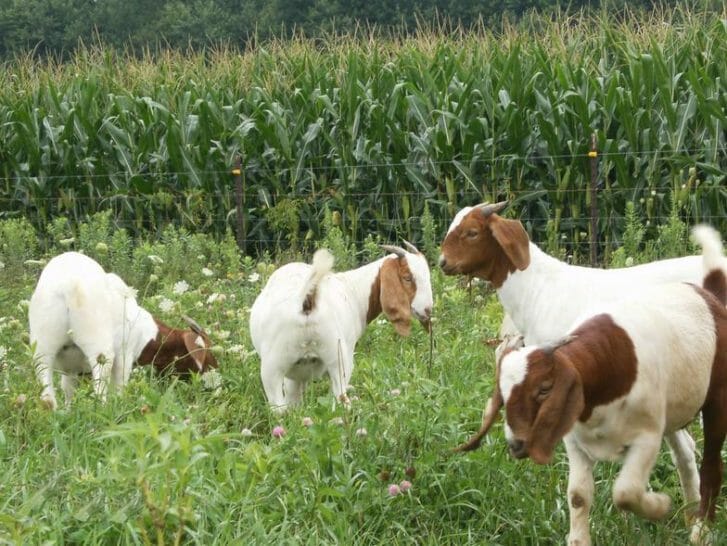RESEARCH REPORT: Goat Grazing to Reduce Parasite Loads
In March of last year, PFI cooperators Dawn Anderson and Cheryl and Mike Hopkins frost-seeded their pastures in preparation for grazing their Boer goats. Diverse pasture species were seeded in hopes to reduce parasite loads, particularly the barber pole worm, in the goats.
Dawn Anderson seeded pastures with sorghum-sudangrass, birdsfoot trefoil, cereal rye, forage collards, camelina and sunn hemp. Cheryl and Mike Hopkins frost seeded pastures with legumes and herbal blends including plantain, sheep’s parsley, chicory, crimson clover, and sericea lespedeza. Forage species diversity was measured, fecal egg counts were taken and the FAMACHA parasite scoring system was used on the herds.
Key findings:
Both farms reported lower fecal egg counts and manageable FAMACHA scores. These findings helped the farmers selectively de-worm the animals that needed it. The results showed that grazing forage mixes helped reduce parasite issues in both herds. Read the full report here.
For more information on managing parasites in small ruminants, contact Meghan Filbert at meghan@practicalfarmers.org

